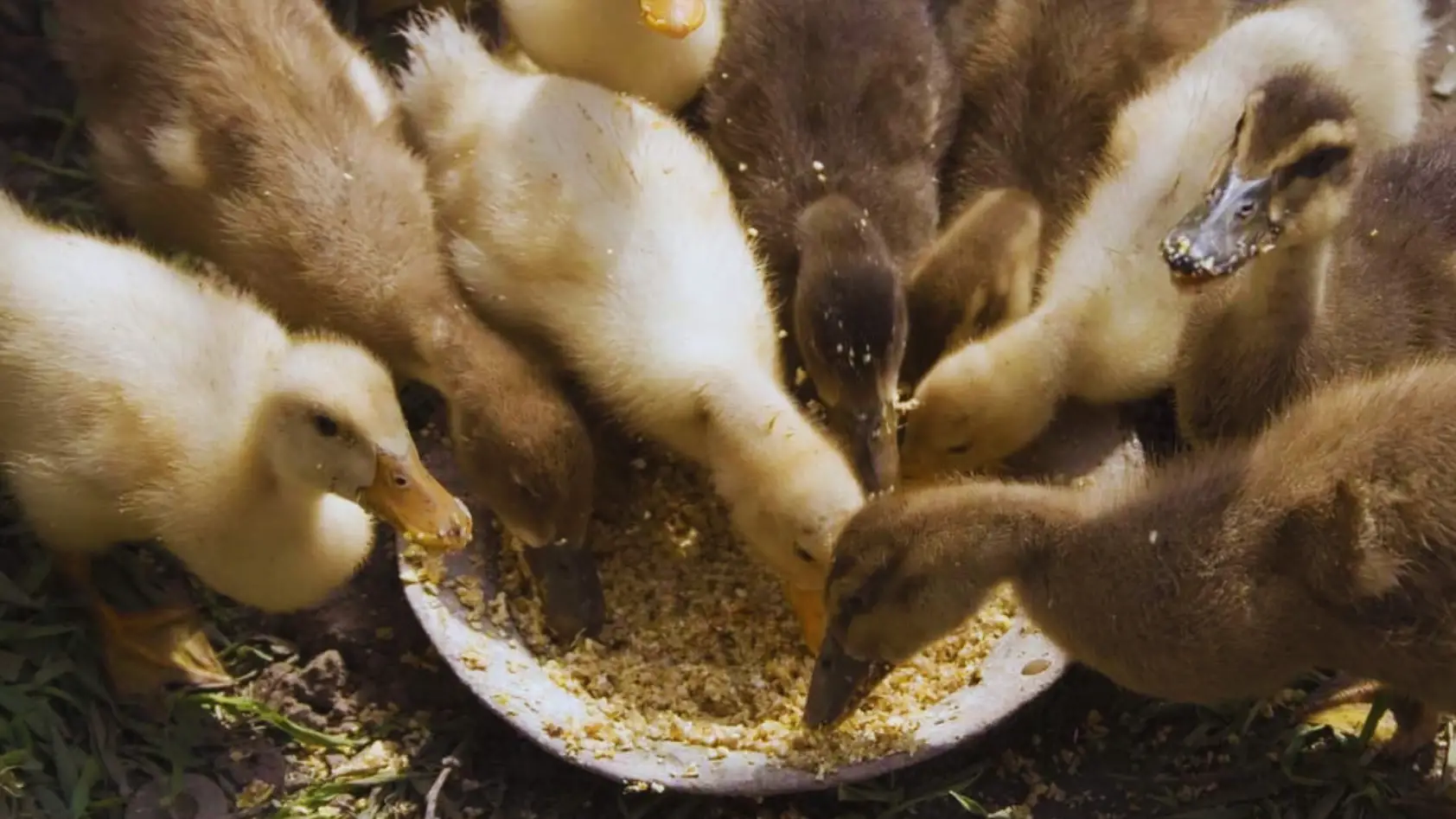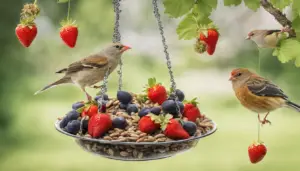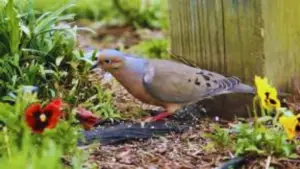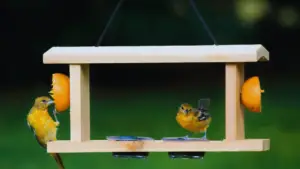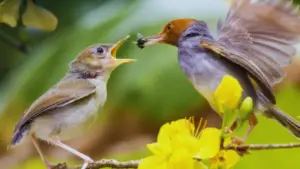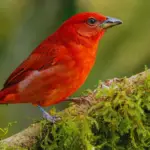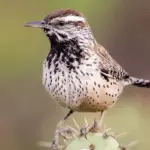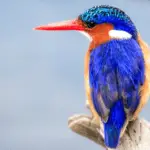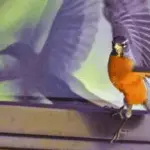Can Ducks Have Oatmeal? We all know that ducks love to eat bread, but what about oatmeal? Can ducks have oatmeal? It turns out that ducks can enjoy a bowl of oatmeal just like we do! In fact, oatmeal can be a healthy and nutritious treat for ducks. So, if you’re looking for a new way to feed your feathered friend, oatmeal might be a good option. Just be sure to cook it without..
Ducks have specific nutritional needs, and it is important to understand what they require to maintain their health. We will debunk common misconceptions about feeding ducks, such as the belief that bread is a suitable food source.
Additionally, we will observe the reactions of ducks to oatmeal and discuss the potential benefits and risks. To ensure accurate information, we will consult with experts and veterinarians who specialize in avian nutrition.
Whether you encounter ducks in the wild or have them in a domestic setting, this article will provide guidance on how to provide a balanced and nutritious diet for these delightful creatures.
Key Takeaways
- Ducks are omnivores, and their diet should include protein, carbohydrates, fats, vitamins, and minerals.
- Oatmeal can be a nutritious option for ducks, providing fiber, vitamins, and minerals, and promoting healthy digestion and feather health.
- Feeding bread to ducks can be harmful, leading to malnutrition, obesity, digestive issues, and water pollution.
- It is important to consult with experts or veterinarians for guidance on ducks’ nutrition, including the appropriate portion sizes and alternative food options.
Overview of Duck Diet and Nutritional Needs
Ducks have specific dietary needs that are important to understand. They are omnivores, meaning they eat both plants and animals. In the wild, ducks feed on aquatic plants, insects, small fish, and grains. Domesticated ducks may have a slightly different diet.
A balanced duck diet should include protein, carbohydrates, fats, vitamins, and minerals. Protein is necessary for muscle development and growth, so ducks need a good source of it, such as insects, worms, or commercial duck feed. Carbohydrates provide energy, and ducks can get this from grains, seeds, and vegetables.
Ducks also require healthy fats, which can be found in seeds, nuts, and oils. These fats help with insulation and provide energy during the colder months. Vitamins and minerals are crucial for overall health and can be obtained from a variety of fruits, vegetables, and supplements.
It’s important to note that ducks should not be fed bread or oatmeal alone, as they lack the necessary nutrients. While ducks may enjoy these treats, they should be given in moderation.
Understanding the nutritional needs of ducks is essential for their overall health and well-being. By providing a balanced diet, you can ensure that your ducks lead a healthy and fulfilling life.
Natural Food Sources for Ducks in the Wild
In the wild, ducks have access to a variety of natural food sources to meet their nutritional needs. Aquatic plants and invertebrates make up a significant part of their diet, providing essential nutrients and proteins.
Additionally, ducks also feed on seeds, grains, and grasses found in their environment, which offer a good source of carbohydrates and fiber.
Aquatic Plants and Invertebrates
You should definitely consider feeding your duck a combination of aquatic plants and invertebrates for a well-rounded diet. Ducks are natural foragers and thrive on a variety of foods found in their natural habitat. Here are three options to consider:
- Duckweed: This floating aquatic plant is rich in protein and vitamins, making it an excellent choice for your duck’s diet. It can be easily grown in a backyard pond or purchased from a local pet store.
- Watermeal: Similar to duckweed, watermeal is another nutritious aquatic plant that ducks enjoy. It provides essential nutrients and is readily available in many bodies of water.
- Snails and insects: Ducks love to feast on snails, worms, and insects found in and around water. These small creatures are a great source of protein and help diversify your duck’s diet.
By incorporating a combination of aquatic plants and invertebrates into your duck’s diet, you can ensure they receive the necessary nutrients for a healthy and balanced lifestyle.
Seeds, Grains, and Grasses
Imagine stepping into a world of abundant sustenance, where a symphony of seeds, grains, and grasses awaits your hungry duck. Ducks have a diverse diet that includes a variety of seeds, grains, and grasses, which provide essential nutrients for their growth and well-being. Seeds like sunflower and millet are rich in protein and healthy fats, while grains such as corn and wheat offer a good source of carbohydrates. Ducks also enjoy feasting on different types of grasses, such as Timothy grass and Bermuda grass, which provide them with fiber and help maintain their digestive health. To give you a better understanding of the nutritional choices available for ducks, here is a table showcasing some common seeds, grains, and grasses and their nutritional content:
| Food | Protein (g) | Carbohydrates (g) | Fiber (g) |
|---|---|---|---|
| Sunflower | 21 | 20 | 8 |
| Millet | 11 | 72 | 4 |
| Timothy Grass | 4 | 22 | 7 |
As you can see, ducks have a wide array of options when it comes to incorporating seeds, grains, and grasses into their diet, ensuring they receive a balanced and nutritious meal.
Common Misconceptions About Feeding Ducks
Contrary to popular belief, ducks can consume oatmeal as part of their diet. Many people have misconceptions about feeding ducks and assume that they can only eat bread or grains. However, ducks are omnivorous creatures and can benefit from a varied diet.
Oatmeal can be a nutritious and tasty addition to their meals.
Here are three reasons why oatmeal is a suitable food choice for ducks:
- Oatmeal is rich in fiber, which aids in digestion and promotes a healthy gut. It can help prevent constipation and other digestive issues in ducks.
- Oatmeal is a good source of carbohydrates, providing ducks with energy for their daily activities. It can be especially beneficial during the colder months, when ducks need more energy to stay warm.
- Oatmeal contains essential vitamins and minerals that are important for the overall health of ducks. These include B vitamins, iron, and calcium, which support their immune system, bone health, and egg production.
When feeding ducks oatmeal, it is essential to ensure that it is cooked and not overly sweetened or flavored. Plain, cooked oatmeal without any additives is the best option. Remember to offer it in moderation along with other foods to maintain a balanced diet for your feathered friends.
Health Risks of Feeding Ducks Bread
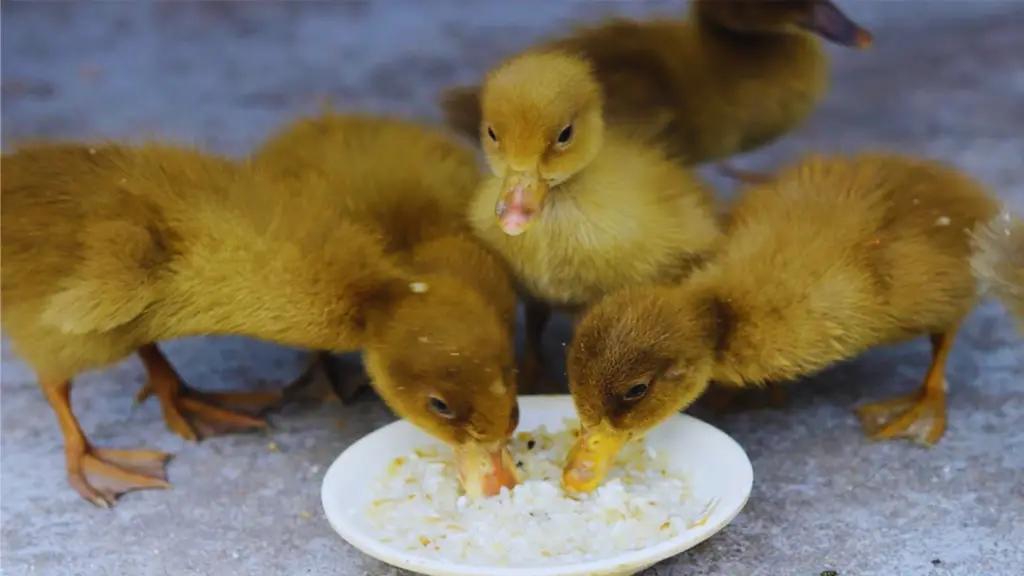
Feeding bread to ducks can be a recipe for disaster, as it can pose serious health risks to our feathered friends. While it may be a common practice for many people to toss bread crumbs to ducks at the park, it is important to understand the potential harm it can cause.
Bread is high in carbohydrates and lacks the essential nutrients that ducks need to thrive. When ducks consume excessive amounts of bread, it can lead to malnutrition and obesity, which can negatively impact their overall health.
Additionally, bread can cause digestive issues for ducks. Their digestive systems are not designed to process large amounts of bread, leading to bloating, diarrhea, and even a condition called ‘angel wing.’ Angel wings cause the wings of ducks to twist unnaturally, making it difficult for them to fly and survive in their natural habitats.
Furthermore, the leftover bread in the water can contribute to water pollution and the growth of harmful bacteria, posing risks not only to the ducks but also to other wildlife.
Instead of bread, it is recommended to feed ducks a balanced diet that includes foods like grains, vegetables, fruits, and even some insects. These options provide the necessary nutrients for ducks to maintain good health and thrive in their natural environments.
So next time you encounter a group of ducks, remember to choose healthier alternatives to bread and help protect their well-being.
Exploring Other Nutritious Food Options for Ducks
When it comes to nourishing our feathered friends, there are plenty of tasty and wholesome options to explore. Feeding ducks bread may not be the healthiest choice, but fear not! There are other nutritious food options that can keep our quacking companions happy and well-fed.
One option to consider is oatmeal. Yes, ducks can indeed have oatmeal! This warm and comforting breakfast staple is not only delicious but also packed with nutrients. Oatmeal provides ducks with a good source of fiber, which aids in digestion and keeps their tummies happy. It also contains essential vitamins and minerals, such as iron and zinc, which are important for maintaining their overall health.
To prepare oatmeal for ducks, simply cook it as you would for yourself, using water and avoiding any added sugar or flavorings. Allow the oatmeal to cool before offering it to the ducks. You can serve it in a shallow dish or scatter it on the ground, giving them the opportunity to peck at it.
Remember, while oatmeal can be a healthy addition to a duck’s diet, it should not be the sole source of their nutrition. Ducks also need a varied diet that includes other grains, fruits, vegetables, and protein-rich foods. By offering a balanced mix of nutritious options, you can ensure that your feathered friends are getting the nourishment they need to thrive.
The Benefits of Oatmeal for Ducks
Indulging in a warm bowl of oatmeal not only satisfies your own cravings, but it also provides a multitude of benefits for your quacking companions. Ducks can indeed have oatmeal, and here are three reasons why it is a great addition to their diet:
- Nutritional Value: Oatmeal is packed with essential nutrients like carbohydrates, fiber, and protein. These nutrients help ducks maintain their energy levels and promote healthy digestion.
- Weight Management: Ducks, just like humans, can struggle with weight gain. Oatmeal is a low-calorie food option that can help ducks maintain a healthy weight. Its high fiber content keeps them feeling full for longer, reducing the chances of overeating.
- Feather Health: Oatmeal contains biotin, a B-vitamin that promotes strong and healthy feathers. Feathers are essential for ducks, as they provide insulation and protect them from the elements. Including oatmeal in their diet can help maintain their plumage in top condition.
So, the next time you are enjoying a warm bowl of oatmeal, consider sharing some with your feathered friends. Not only will they appreciate the tasty treat, but they will also reap the many benefits that oatmeal brings to their overall health and well-being.
Feeding Ducks Oatmeal Responsibly
Now that you know about the benefits of oatmeal for ducks, it’s important to understand how to responsibly feed them this nutritious treat. Feeding ducks oatmeal can be a great way to supplement their diet, but it’s crucial to do so in a responsible manner.
First and foremost, remember that oatmeal should never be the sole source of nutrition for ducks. While it can provide them with essential nutrients, it should only be given as a small part of their overall diet. Ducks need a varied diet that includes grains, vegetables, and protein to thrive.
When feeding ducks oatmeal, ensure that it is cooked and unsweetened. Raw oatmeal can be difficult for ducks to digest, so it’s important to cook it thoroughly. Additionally, avoid adding any sugar or sweeteners, as these can be harmful to ducks.
To prevent overfeeding, offer only a small amount of oatmeal at a time. Ducks have small stomachs and can easily become overweight if given too much food. A small handful of oatmeal per duck is usually sufficient.
By following these guidelines and feeding ducks oatmeal responsibly, you can provide them with a healthy and enjoyable treat that complements their diet. Remember, a balanced diet is key to ensuring the well-being of these delightful creatures.
Observing Duck’s Reactions to Oatmeal
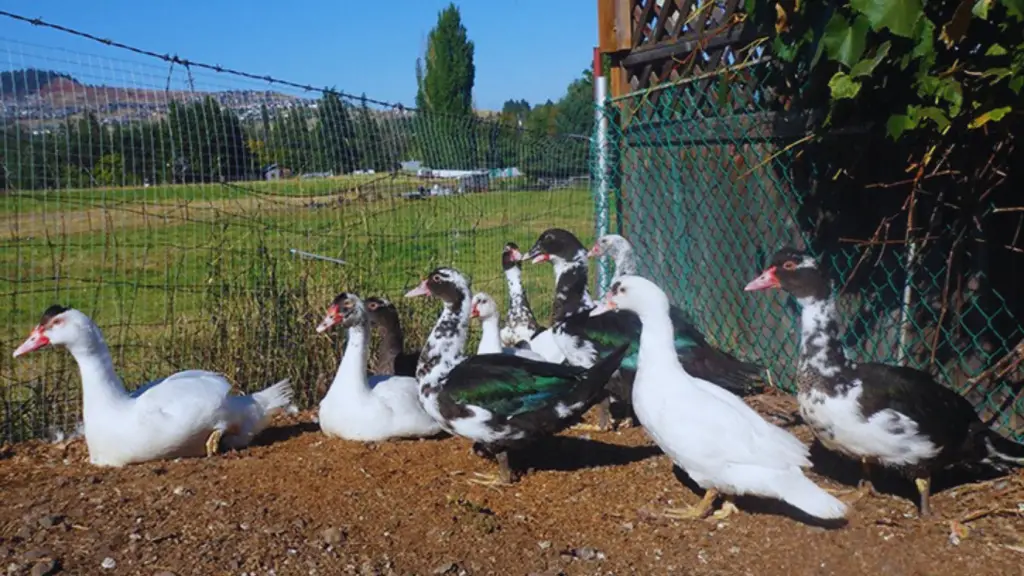
Curiously watching their response, you’ll be amazed at how ducks react to the nutritious treat of oatmeal. As you toss a handful of warm oatmeal onto the water’s surface, the ducks paddle excitedly towards it, creating a flurry of feathers and ripples. With their webbed feet, they glide effortlessly across the water, eagerly gobbling up the floating morsels.
You’ll notice their beaks pecking at the oatmeal, making quick work of devouring the soft texture. Their enthusiasm is evident as they bob their heads up and down, expressing their enjoyment. Some ducks may even dive underwater to retrieve oatmeal that sinks below the surface.
It’s fascinating to observe their reactions to oatmeal. Ducks are naturally omnivorous, meaning they eat both plants and small animals. Therefore, introducing oatmeal into their diet is a great way to provide them with essential nutrients. Oatmeal is rich in carbohydrates, fiber, and protein, which can contribute to their overall health and well-being.
Furthermore, feeding ducks oatmeal can be a bonding experience between humans and these lovely creatures. As they become accustomed to your presence, they may even approach you expectantly, hoping for another handful of the tasty treat.
In conclusion, ducks react positively to oatmeal, showing their appreciation through their energetic response. By offering them this nutritious treat, you not only provide them with a delicious meal but also foster a connection with these delightful waterfowl. So, grab some oatmeal and head to the nearest pond to witness these incredible reactions firsthand.
Consulting with Experts or Veterinarians
Seeking advice from experts or veterinarians can provide valuable insights into the best dietary options for these fascinating waterfowl, ensuring their health and happiness are well taken care of. When it comes to feeding ducks oatmeal, it is important to consult with professionals who have a deep understanding of avian nutrition. Ducks have specific dietary needs, and what might be suitable for humans may not be suitable for them.
Experts and veterinarians can provide guidance on the nutritional content of oatmeal and its potential benefits or drawbacks for ducks. They can explain how oatmeal fits into the overall diet of ducks and whether it should be a regular part of their meals or just an occasional treat. They can also advise on the appropriate portion sizes to avoid overfeeding, which can lead to health issues.
Additionally, experts can share alternative food options that better meet the nutritional requirements of ducks. They may recommend a balanced diet that includes a variety of grains, seeds, vegetables, and insects. By consulting with professionals, duck owners can ensure that they are making informed choices that promote the well-being of their feathered friends.
Remember, the health and happiness of ducks should always be a priority, and seeking advice from experts or veterinarians is a wise step towards providing them with the best possible care.
Considerations for Ducks in Captivity or Domestic Settings
When caring for ducks in captivity or domestic settings, it is crucial to create an environment that closely mimics their natural habitat. This ensures their well-being and overall happiness. Ducks thrive in environments that provide them with access to water, a suitable diet, shelter, and space to roam and interact with other ducks.
Here are some considerations to keep in mind when caring for ducks in captivity or domestic settings:
- Provide a pond or a large container filled with clean water for the ducks to swim in, preen their feathers, and forage for food.
- Ducks require a balanced diet that includes a variety of foods such as grains, vegetables, insects, and small aquatic organisms.
- Offer shelter that protects ducks from extreme weather conditions, predators, and provides them with a safe place to rest and nest.
- Ducks need ample space to move around freely, flap their wings, and engage in natural behaviors like foraging and socializing.
- Regular veterinary check-ups are essential to ensure ducks remain healthy and to address any potential health issues.
By creating an environment that meets these requirements, you can provide ducks with a comfortable and fulfilling life in captivity or domestic settings. Remember, the well-being of ducks should always be a top priority in their care.
Conclusion: Providing a Balanced and Nutritious Diet for Ducks
To ensure your ducks stay healthy and satisfied, it’s crucial to provide them with a well-balanced and nutritious diet that meets their dietary needs. Ducks are omnivorous creatures, meaning they eat both plant and animal matter. This means that their diet should consist of a variety of foods to ensure they receive all the necessary nutrients.
When it comes to feeding your ducks, it’s important to remember that not all foods are safe for them to consume. While ducks can have oatmeal in moderation, it should not be the sole component of their diet. Oatmeal can be a good source of carbohydrates for ducks, but it lacks certain essential nutrients that they need to thrive.
In addition to oatmeal, ducks should be offered a mix of leafy greens, such as lettuce or spinach, as well as other vegetables like peas or corn. They also require a source of protein, which can be provided through insects, worms, or specially formulated duck feed. It’s important to provide them with access to fresh, clean water at all times.
By offering a diverse range of foods, you can ensure that your ducks receive a well-rounded diet that promotes their overall health and well-being. Remember to consult with a veterinarian or avian expert to ensure you are meeting all of your ducks’ specific dietary requirements.
Can Ducks Have Oatmeal? FAQs
Can ducks have other grains besides oatmeal?
Ducks can have a variety of grains besides oatmeal. They enjoy corn, barley, wheat, and rice. These grains provide essential nutrients and can be a healthy addition to their diet.
How much oatmeal should be fed to ducks?
Feed ducks a fair amount of oatmeal, following the feeding guidelines. Ensure a balanced diet by incorporating other grains. Remember, ducks deserve the best nutrition for their well-being and happiness. Keep them quacking and satisfied!
Can ducks eat oatmeal with other ingredients, such as fruits or vegetables?
Yes, ducks can eat oatmeal with other ingredients like fruits or vegetables. It’s a nutritious option for them and can add a variety of flavors and textures to their diet.
Are there any negative effects of feeding ducks oatmeal?
Feeding ducks oatmeal can have negative effects on their health. It’s like putting a square peg in a round hole – the ducks’ digestive systems aren’t designed to handle processed foods.
Can ducks become dependent on oatmeal and refuse to eat other foods?
Ducks can become dependent on oatmeal and refuse to eat other foods. This can lead to nutritional deficiencies and health issues. It’s important to provide a balanced diet for their overall well-being.
Conclusion
Now that you’ve explored the nutritional choices of ducks, it’s time to spread your wings and make a conscious effort to provide them with a balanced and nutritious diet.
Remember, feeding them solely with oatmeal may not be the best choice. Instead, let’s use the oatmeal as a symbol of our responsibility towards these beautiful creatures.
By consulting experts and observing their reactions, we can ensure their well-being and happiness.
Whether in the wild or in captivity, let’s be mindful of their diet, for it represents our care and respect for nature’s wonders.

